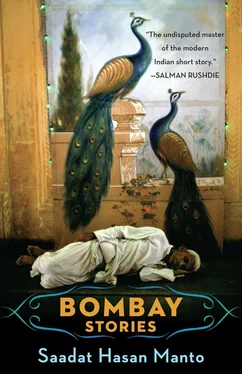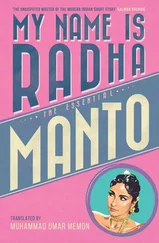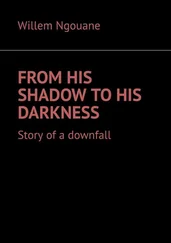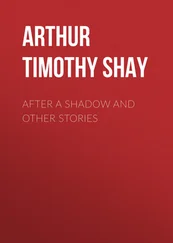Indeed, perhaps the most consistent reaction to Manto’s writing during his lifetime was censure. Manto stood accused of writing obscenities on five separate occasions. His first four trials took place in Lahore and the last in Karachi, and in each instance he was eventually acquitted. His first trial took place shortly after the story ‘The Black Shalwar’ was published in 1941. 103His second such experience took place after he had resettled in Bombay. A CID agent arrived from Lahore to arrest Manto at ten at night in his apartment on January 8, 1945, again in connection with ‘The Black Shalwar’ but also for his story ‘Smoke’. 104Manto was subsequently released on bail and ordered to stand trial in Lahore. 105
Manto stood trial for the third time for his story ‘Smell’ and his essay ‘Modern Literature’. 106In the manner typical of his trials, he was convicted in the lower court but then acquitted in the sessions court. 107On May 3, 1945 Special Sessions’ Judge M.R. Bhatiya wrote in his judgment that in ‘[the story] there was nothing to incite lustful feelings, and moreover in the testimony of the expert literary witnesses the story is progressive … and will have no harmful effect on people’s morals.’ 108Manto’s difficulties with censorship continued after Partition as well. After the Lahore literary journal Portraits 109published his canonical story ‘Open Up’, the Pakistani government stepped in to close down the journal’s printing operations for six months. 110Manto’s story ‘Cold Meat’ then became the focus of a series of trials. Manto, along with Nasir Anwar, the owner and editor of Eternity , 111the magazine that printed the story, faced an arduous course that lasted over a year. Manto faced a prison term of three months’ heavy labour and a fine of 300 rupees (along with three weeks’ additional heavy labour if he couldn’t come up with the money to pay the fine), 112but in the end Sessions Court Judge Inayatullah Khan came to the reasonable conclusion that ‘Cold Meat’ was ‘not obscene nor overly objectionable.’ 113Manto would stand trial one last time in Karachi for his story ‘Above, Below, and in Between’, with the result this time being a small fine that Nasir Anwar willingly paid. 114Unfortunately, Manto’s troubles with the Pakistani government have continued into the present, and on the fiftieth anniversary of his death, he was still banned on Pakistani television and radio. 115
Other than the government censors and Manto’s fellow writers, it’s not clear how many read his work. His stories were published in the leading Urdu literary magazines of his time, but these presumably had small subscriptions as they did not alleviate the poverty that Manto battled for most of his life. Manto began his autobiographical essay ‘My Wedding’ with a self-conscious appeal to readers, ‘For those of you who want to peek into my life, I’m going to tell you about my wedding’, 116and yet the curious question arises as to who exactly he imagined was interested. (Then again, writers do convince themselves that someone is listening.) When Manto left his employment in the Bombay film industry and arrived in Pakistan, he suddenly found himself unable to earn money writing and unwilling to find a new way of generating an income. In his essay ‘Bald Angels’, Manto wrote:
To tell you the truth I was so bitter about things that I wanted to get an allotment. 117Then I could comfortably sit in the corner and let my writing go. Any thoughts I had, I’d let them pass. If I didn’t get an allotment, then I’d go to work in the black market or make bootleg liquor. But I feared that if I ended up doing that, I’d drink all the booze myself — all my efforts would be wasted and I wouldn’t earn anything at all. 118
BOMBAY STORIES
Manto’s best known stories are those set in the Partition days — gory, chilling narratives, such as ‘Open Up’ and ‘Cold Meat’ as well as the psychological portrait of madness in ‘Toba Tek Singh.’ Yet his writing had other focal points and bore other geographies in mind, in particular those related to Bombay.
For a restless soul like Manto, home would never be an easy concept, but there is good evidence to suggest that he felt more at home in Bombay’s cosmopolitan, topsyturvy metropolis than anywhere else. After immigrating to Pakistan, he was filled with nostalgia for the life he had known in Bombay. In the postscript to his volume of short stories Yazid (1951), 119he wrote about his feelings for the city, his ‘other home’:
Today I am disconsolate. A strange brooding has come over me. It is the same sadness I experienced four or four and a half years ago when I bid farewell to my other home, Bombay. It was a blow to have to leave Bombay, where I had lived such a busy life. Bombay had taken me in, a wandering outcast thrown out by even his family. 120She had told me, ‘You can live here happily on two paise a day or on ten thousand rupees. Or if you want, you can be the saddest person in the world at either price. Here you can do whatever you want, and no one will think you’re strange. Here no one will tell you what to do. You will have to do every difficult thing on your own, and you will have to make every important decision by yourself. I don’t care if you live on the sidewalk or in a magnificent mansion. I don’t care if you stay or go. I’ll always be here.’
I was disconsolate after leaving Bombay. My good friends were there. I had gotten married there. My first child was born there, as was my second. There I had gone from earning a couple rupees a day to thousands — hundreds of thousands 121—and there I had spent it all. I loved it, and I still do!
Bombay meant something to Manto beyond being merely a place he knew, a city in which he had lived. In this wistful invocation, he states his outright love for the city. He mentions two chief things. For one, years of personal history important to him took place there. Compared to his new life in Lahore, his time in Bombay had been full of crucial, exciting work to do, money to be earned, and people to meet. He valued how the city had made him who he was, how it had given him the opportunity to be a writer and to mix with the creative elite of his country. In hindsight, he must have felt as if he had been part of an enormous, vital enterprise.
But he also praises the city in another way. He appreciated how it had accepted him although he had failed by the middle-class standards of Indian society. Interestingly, the city’s acceptance was not obvious approbation but benign indifference. 122But with indifference came anonymity and in turn the freedom to become who he wished to be. Self-reliance and personal fortitude were traits that Manto valued, and when he saw that the city espoused the same qualities, he must have felt within his rightful domain. Bombay, more than Delhi, and certainly more than provincial Lahore, was the city of license and liberty that Manto craved, the place where he might become his own man.
Bombay Stories is a collection of Manto’s fiction set in part or entirely in that city, and a unique sense of place emerges through the narratives. In fact, a merging of place and character seems to occur for Manto, as for many after him — to write about Bombay means to write about a certain group of characters of a particular milieu. Bombay Stories represents the first and best literary evidence of Bombay’s emergence as the modern city we now recognize it to be, and Manto’s way of characterizing the city — populating it with a motley crew of prostitutes, pimps, writers, film stars, musicians, the debauched, and the rich — has become typical of a sub-genre of Indian fiction that I will loosely call ‘Bombay fiction.’ Whether through historical coincidence or literary prescience or both, Manto stands at the very beginning of this important Indian literary tradition.
Читать дальше












